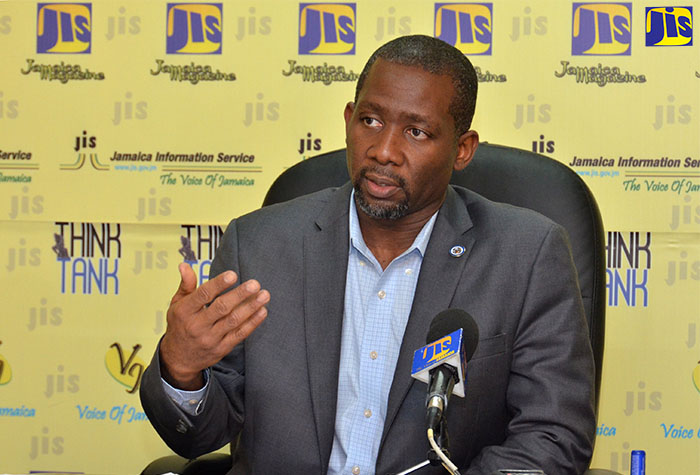Multisectoral Approach Needed for Ganja Regulation
By: , November 23, 2016The Key Point:
The Facts
- Mr. Clarke also stressed that the regulation must address issues pertaining to persons deviating from the legislative stipulations regarding ganja use.
- He added that countries have different reasons for regulating ganja and that two of Jamaica’s main goals are to reduce the burden on the justice system, and to reduce the number of persons with criminal records.
The Full Story
Specialist on drug abuse control at the Organization of American States (OAS), Pernell Clarke, has underscored the need for a multisectoral approach to ganja regulation in Jamaica.
Mr. Clarke, who is also a Research Specialist with the Inter-American Drug Abuse Control Commission (CICAD), says this undertaking is not confined to matters of national security, but cuts across several sectors and agencies.
“Public health is a very important consideration in enforcing laws relating to smoking in public places, because (with decriminalisation), marijuana is going to become more available, and that’s something you have to prepare for,” he said, adding that accessibility is inextricably linked to consumption.
In this regard, Mr. Clarke emphasised that the regulation needs to consider and make provisions for the sectors and stakeholders that will be affected.
He was speaking at a recent JIS ‘Think Tank’ held at the agency’s head office in Kingston.
Mr. Clarke also stressed that the regulation must address issues pertaining to persons deviating from the legislative stipulations regarding ganja use.
“When persons are caught with quantities above two ounces (as per the legislation), the pre-existing laws still have to be enforced,” he noted.
Mr. Clarke also pointed out the importance of examining other jurisdictions that have implemented legislation, to learn from their experiences.
“Jamaica and any other country that is interested in ganja regulation need to pay close attention to countries where ganja has been decriminalised. It is important to keep an ear to the ground, see what works for them and apply it to your context,” he said.
The CICAD official indicated that, unfortunately, the research is lagging behind the policy and this is forcing countries such as Jamaica to use precedent to inform the regulation process.
He added that countries have different reasons for regulating ganja and that two of Jamaica’s main goals are to reduce the burden on the justice system, and to reduce the number of persons with criminal records.
Mr. Clarke said in this regard, it is important for the country to have a regime where people can buy the drug legally and use it recreationally or for medicinal purposes.
The CICAD official was in the island to assist with the analysis and dissemination of the findings of a drug-prevalence survey by the National Council on Drug Abuse (NCDA).
CICAD is a policy forum for all of the countries in the Americas as they work together to tackle the issues and the consequences of drug production, trafficking and consumption.

